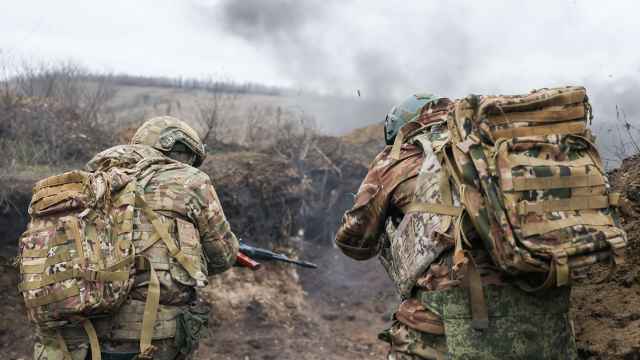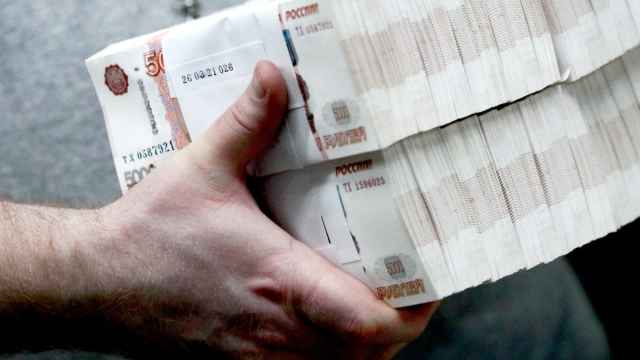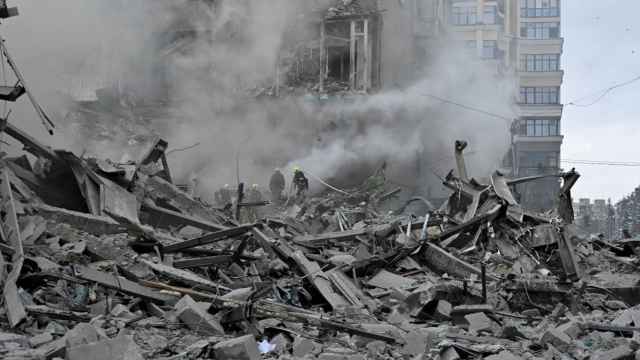As oil prices slumped toward $80 per barrel recently, many Russians looked nervously back at the collapse of the Soviet Union. In the late 1980s, the price of oil plummeted, from $35 per barrel at the beginning of the decade to only $10 per barrel by 1985. Several years later, the Soviet Union collapsed under a mountain of inflated rubles and unpaid debt. Many blame the Soviet collapse on oil prices, but that is misleading and cannot offer any insight into Russia's current economic problems.
The argument that oil caused the Soviet Union's demise has proven remarkably useful in Russian politics. The strongmen from the security forces who now control most of Russia's energy industry point to the Soviet Union's dissolution as the reason why the state needs to keep an iron grip on oil companies.
Economic history, however, tells a different story. In fact, oil was far from the most significant factor destabilizing the Soviet budget during the 1980s. Throughout the decade, the Soviet Union was embroiled in a hopeless war in Afghanistan. That misadventure required higher military spending and caused the West to retaliate by imposing trade and investment sections. This led to slower growth and a higher budget deficit.
Even more important than the war in Afghanistan was the war on alcohol, launched by Soviet leader Mikhail Gorbachev in 1985. The campaign made the population healthier, but it devastated the government budget. In the first year of the anti-alcohol campaign, liquor sales fell by 80 percent, cutting the government's revenue from alcohol taxes by 15 billion rubles. That was roughly the same size as the decline in export revenue due to lower oil prices.
Wasteful consumer price subsidies were more costly still. Soviet grocery stores sold food to consumers at below-market prices, and the government paid the difference. The Kremlin believed that cheap food was crucial to staving off popular protests, so it spent extravagant sums on such subsidies, which according to IMF calculations reached 15 percent of GDP by 1990. Meat and dairy subsidies alone cost 5 percent of GDP.
The parallels between the Soviet Union in the 1980s and Russia today are eerier than the oil price alone suggests. A pointless war — Afghanistan then, Ukraine today — sapped economic strength and provoked Western sanctions. During the Soviet period, food subsidies cost the government billions of rubles. Today, according to IMF data, Russia's energy subsidies waste about 5 percent of GDP each year. Rapid salary increases for state employees cost billions more.
Nonetheless, Russians can be thankful that their economic situation is far less dire today than it was during the last days of the Soviet Union. But on its current path, Russia is headed toward several years of stagnation and disappointing growth. It is far from clear that Russia's leaders realize that change is needed. On the one hand, Russia's new budget projections call for lower spending over the next several years to keep the budget deficit from spiraling out of control.
Yet the Kremlin is willing to spend lavishly on favored interests, even using special pension reserves to finance pet projects. And steps to improve the business climate, invest in human capital or cut corruption are no longer seriously discussed.
Instead of devising policies that would boost growth, Russia's elite is preparing for another battle over state subsidies and energy concessions. State-owned oil giant Rosneft asked for government aid to the tune of $49 billion to offset losses caused by Western sanctions.
Policies like these, which waste money and depress investment, point to the real lesson of the Soviet economic collapse: Politicians will blame slowing growth on the vagaries of the global oil market, but the real problems, once again, lie closer to home.
Chris Miller is a Ph.D. candidate at Yale and is completing a book on Russian-Chinese relations.
A Message from The Moscow Times:
Dear readers,
We are facing unprecedented challenges. Russia's Prosecutor General's Office has designated The Moscow Times as an "undesirable" organization, criminalizing our work and putting our staff at risk of prosecution. This follows our earlier unjust labeling as a "foreign agent."
These actions are direct attempts to silence independent journalism in Russia. The authorities claim our work "discredits the decisions of the Russian leadership." We see things differently: we strive to provide accurate, unbiased reporting on Russia.
We, the journalists of The Moscow Times, refuse to be silenced. But to continue our work, we need your help.
Your support, no matter how small, makes a world of difference. If you can, please support us monthly starting from just $2. It's quick to set up, and every contribution makes a significant impact.
By supporting The Moscow Times, you're defending open, independent journalism in the face of repression. Thank you for standing with us.
Remind me later.






